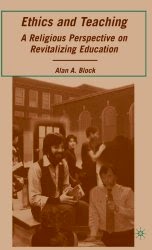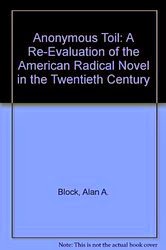
I’ve been thinking about storms.
Here in the mid-west, late at night and during the early Summer months, roiling thunderstorms inspire terror and astonishment. Like a symphony comprised wholly of percussion, the storm strikes viscerally into the body recesses. While it is yet brewing miles away, the thunder rumbles like an unsteady beat of tympani drums; we lie awake and hope the storm will keep its distance; at this stage, we can see the lightning flash though it cannot yet be heard. We slip further under the light cotton blanket and think to fall back to sleep.
As the storm approaches near, the thunder increases in shattering shuddering decibels, reaching through the house walls, shaking us who already quake in our beds. Lightning cracks the sky with the violent sounds of wood torn and splintered. We lie in our beds certain that one of the thunderclaps will rip in two our feeble solitary home atop the hill, and expose us naked to the brutal physical assault of the violent storm. Our beds are no longer a safe refuge, and we rise from them and stand staring wide-eyed at the window. The dark shapes of standing tall trees snap back and forth whipped by the violent winds, and I expect to see one of them go flying, uprooted and groundless past our window. Thunder now rolls and fills the air like the sound of a thousand tympani drums, and the lightning in brief strobe-like bursts flashes in split second intervals. The lashing rain beats on the ground and our roof and our windows in unsteady but persistent rhythms demanding attention if not immediate entrance. Its rhythmic drumming is in counterpoint to the thunder and lightning, and altogether it makes an unholy sound out of which I expect monsters to rise up. I think of Mussorgsky’s “A Night on Bald Mountain,” but it is late June and not All Hallow’s Eve, and this isn’t recorded music but real Nature threatening. Home does not feel safe, and yet it is all the safety we have.
Sometimes the storm insistently challenges us to come out and confront it. Such is the storm that rages throughout Beethoven’s Fifth Symphony. It insists that we acknowledge it: “Thus, fate knocks at the door!” And we are pulled out of the safety of our homes by our acceptance of this summons. Why we follow I am not sure: perhaps we mean to confront the fierce tempest, to accept its challenge and challenge ourselves. Perhaps we are drawn by the insistence of the taunt. Perhaps we are even too afraid to refuse. The tensions implicit in the ta-ta-ta-TA call, the short bursts of eighth notes followed by a prolonged, lowered, drawn out note that permeates this first movement (and even the entire symphony) threatens our calm and security. Its persistent assertion disturbs our rest. During this movement there are moments when the storm steals away my breath and I find no safety from it, know no place to hide, yet I am drawn forward by the power and violence of the storm.
The second movement, andante con moto (slowly with motion), offers some respite from the onslaught. It is a rather long rest, and during it I look nervously about, and take deep breaths. The melodies are gorgeous, and I feel almost safe; I hope the struggle is over. But, alas, the storm has not at all dissipated; and this illusory calm does not resolve into a praise to God as it does at the end of the storm in Beethoven’s 6th Symphony. And the night is dark and I am far from home.
With the ominous rumbling of the basses and a reprise of the four-note provocation, the storm returns in the opening bars of the Third Movement, and I am now out too far to find shelter to protect me from the onslaught. I am on my own, and I am all the resources I have at my disposal; I am not at ease. The storm beats at me, and in the final moments of the Third Movement beginning with the ominous sound of tympani drums—the final assault of thunder approaches. The entering violins, churn threateningly not in the tonic key but in tension with it, rise slowly in pitch and intensity and volume, as if waiting tauntingly for the order for the final attack, move anxiously about in uncertain and irregular melodies; the music fights with itself, gathering its forces with its power bent on destruction. The violins continue to struggle upwards, but now shift slowly away from conflict and discordancy until, in their final swirlings they reach the tonic key of C major, and there, joined by the entire orchestra, transform the ominous storm into a moment of triumph, and in a glorious resolution the entire orchestra propels me seamlessly into the exultant opening chords of this magnificent fourth movement. The storm continues to rage in this final movement, but it has been overcome: whenever it threatens, its tensions are immediately resolved into triumph. We have become stronger than the storm which rages. We are no longer cowed. We have triumphed. We have been battered and scathed by the storm, but we have returned gloriously to the C major key; we have not only withstood the storm, but transformed it to our triumph. We are stronger now, and we are home.
Sometimes we are already outside when the storm arrives, and we desperately seek shelter from it. This is the storm that blows Dorothy right out of Kansas and into Oz. “It’s a twister, it’s a twister,” the farm hand calls, and on the horizon the dark swirling funnel cloud reaches from earth to heaven blowing away everything in its path and sending it hurtling uncontrollably through the air. The tornado passes dangerously close to Dorothy Gale as she seeks shelter from the storm in her home, but the wind’s force violently blows the windows out where she stands calling out for Auntie Em who already cowers in the shelter under the home. One of those window frames knocks Dorothy unconscious and sends her dreaming. In that dream she and her house land inexplicably in the Technicolor Oz. “I have a feeling,” Dorothy says, “we’re not in Kansas anymore.” For Dorothy, the storm has blown her far from home.
But in fact, I think that Dorothy remainsin black and white Kansas. Everyone from her home exists in Oz, albeit in slightly altered form, and each is recognizable to the viewer, though apparently not to Dorothy. Later, it will seem that she had, indeed, recognized everyone in Oz as someone she knew at home, because when Dorothy awakens from her dream, she tells everyone standing anxiously about her bed that they, indeed, had been in Oz. Blown away by the storm, Dorothy learns that her dream of a better life over the rainbow, a childish dream heard once in a lullaby, is an illusion. Paradise promised there can only be realized here at home. Perfection exists here: indeed, it is only the nasty Miss Gulch, the prototype for the wicked witch, who is missing at the film’s end. Dorothy’s storm has simply blown all of the evils of her home away, and left the rest exactly as it was before the tornado struck. Oddly enough, the warning of the ‘wizard,’ does not affect Dorothy: he had said, don’t listen to the man behind the curtain!!! But she accepts the illusion home offers unqualifiedly: “There’s no place like home.” But I am not certain what she means by that, and I think that it is a greater illusion to which she returns than that from which the storm blew her originally.
Then there is the storm Walter Benjamin describes in his Theses on History. He says, “A Klee painting named ‘Angelus Novus’ shows an angel looking as though he is about to move away from something he is fixedly contemplating. His eyes are staring, his mouth is open, his wings are spread. This is how one pictures the angel of history. His face is turned toward the past. Where we perceive a chain of events, he sees one single catastrophe that keeps piling wreckage and hurls it in front of his feet. The angel would like to stay, awaken the dead, and make whole what has been smashed. But a storm is blowing in from Paradise; it has got caught in his wings with such violence that the angel can no longer close them. The storm irresistibly propels him into the future to which his back is turned, while the pile of debris before him grows skyward. This storm is what we call progress.”
This storm is what we call progress. The face of Benjamin’s Angel is turned toward the past. The angel, looking back, sees not a series of events, but one huge catastrophe that keeps piling “wreckage upon wreckage” at his feet. To the angel, history is not some forward progress, effected in fits and starts and in botched beginnings and failed means; rather, history is one huge disastrous and calamitous blunder piled atop another. The angel would love to stay and to make whole what has been broken, but “a storm blows from Paradise,” and that storm irresistibly propels the angel, head turned toward the past, into a future the angel cannot see. This storm, says Benjamin, is called progress, and represents some blind, violent and uncontrollable force blowing we humans blindly into an unseen future, even while we stare uncomprehendingly at the shards of a broken past that we would but cannot repair. We are blown forward blindly into a future we cannot know or even control, as we look back on a past we cannot understand. Our blind and will-less entry into that future blown by the storm called progress is hardly a sign of advance, however, though our movement appears to us as forward. The storm, like that which blows Dorothy out of Kansas and into Oz, blows us willy-nilly into the future. But it is not the future with which we are concerned; it is the past we would fix, though we will not have the opportunity. Benjamin’s angel cannot repair the past nor can he control the future that he cannot even see. Home is the catastrophe to which return offers illusory hope of repair, but the storm of progress prevents that return. This storm of progress that cannot be controlled nor paused blows the angel forward into some unknown future though his eyes remain fixed on the catastrophe that is the past.
The home to which we go is forever unseen, but the home from which we go is forever in view as disaster.
 My friend tells me that he was recently scolded for violating the protocol in the men’s bathroom. It seems that against the wall were three urinals, and a colleague of his stood at the one on the right doing his business, as my grandmother would say. My friend approached the center urinal and stood . . . well, doing his business, and he was subsequently reprimanded for violating unnecessarily the private space of the first man. Apparently, my friend, the latecomer, so to speak, was supposed to take the urinal one down from his colleague, leaving the center one as a buffer between the males.
My friend tells me that he was recently scolded for violating the protocol in the men’s bathroom. It seems that against the wall were three urinals, and a colleague of his stood at the one on the right doing his business, as my grandmother would say. My friend approached the center urinal and stood . . . well, doing his business, and he was subsequently reprimanded for violating unnecessarily the private space of the first man. Apparently, my friend, the latecomer, so to speak, was supposed to take the urinal one down from his colleague, leaving the center one as a buffer between the males.










